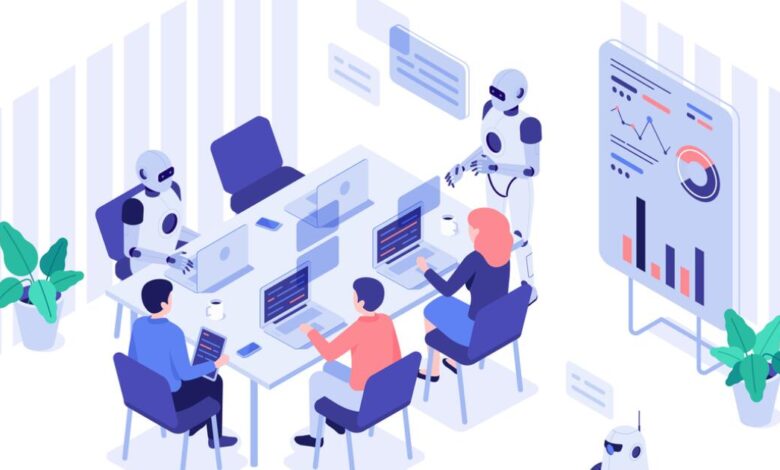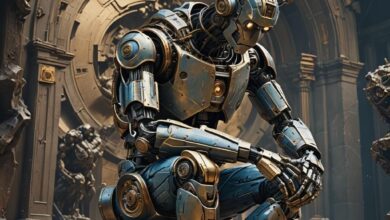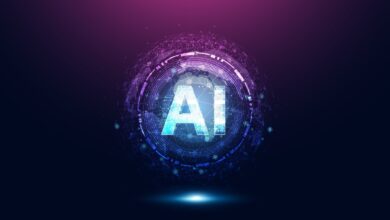Are San Diego jobs at risk from AI?

Last month, San Francisco-based startup OpenAI released its newest artificial intelligence model, GPT-4o (the “o” is for omni), which seems to be a leap forward in how the technology can be applied to real-world tasks, including many that human workers are currently paid to do.
AI can already complete data entry, administrative work, content moderation and graphic design, as well as write press releases and news articles. The technology also powers self-checkout systems, online banking systems and autonomous vehicles.
And, as demonstrated with the GPT-4o release, AI can perform sophisticated call center tasks and real-time language translation. The technology may even be smart enough to replace your company’s CEO.
In a 2023 paper, researchers concluded that around 80 percent of the U.S. workforce could have at least 10 percent of their work tasks affected by large language models, like the one developed by OpenAI. Around 19 percent of workers could see at least half of their tasks impacted, the researchers said.
However, a series of reports by the San Diego Regional EDC published between 2020 and 2023 found that AI and machine learning technologies are actually creating new jobs in fields such as life science, cybersecurity and transportation.
Q. Are San Diego jobs at risk from AI?
Economists
Norm Miller, University of San Diego
YES: I used Copilot to answer this question and it said that office support, customer service, sales, production work and food services are the most negatively impacted, with mixed impacts for those working in health care, transportation, warehousing and law. Artists, builders and creative jobs would be the least impacted. Biotech, life science, tourism and defense seem fairly immune, but most of us will be impacted in some way and expected to be able to do more work in less time.
Ray Major, SANDAG
YES: Artificial intelligence will put at risk certain jobs, but it will also create new ones presumptively resulting in a net gain of jobs in the economy. Technological advancements, especially disruptive ones, have been part of the economic cycle for thousands of years. For example, in the ‘60s and ‘70s there was speculation that computers would replace workers. Some jobs were lost forever, but many others were created and are now the foundation of today’s economy.
David Ely, San Diego State University
NO: As with any new technology, the number of jobs in some occupations will decline as AI adoption expands. However, new types of jobs requiring AI skills are emerging. As the EDC reports show, San Diego is likely to benefit from the growth in AI-related jobs. Moreover, as current employees become proficient in the use of AI tools, they will spend less time on activities that AI can do and more time performing higher-value activities.
Caroline Freund, UC San Diego School of Global Policy and Strategy
NO: Most jobs in San Diego are not at risk. AI cannot cut hair, put out a fire or perform surgery. AI will also create a host of new jobs, unimaginable today. For example, Uber drivers and influencers did not exist 20 years ago. That said, occupations such as data entry, technical writing and call centers are at risk, making adjustment assistance and retraining especially important for workers affected by AI-related job loss.
Lynn Reaser, economist
NO: AI is able to sift through massive amounts of data to find patterns and insights at speeds previously thought unimaginable. It will fundamentally change how work is done rather than significantly reduce the number of jobs. Artificial intelligence will make some jobs obsolete but others more efficient and productive. However, the “intelligence” part of the AI name is somewhat misleading. Human judgment and invention cannot be replaced.
Alan Gin, University of San Diego
YES: AI could do to services employment what robotics did to manufacturing employment. The process of new technology replacing old ones and costing people their jobs has been referred to as “creative destruction.” Jobs have been lost in the past, but new technologies have boosted the economy and created jobs in other areas. Whether that happens with AI remains to be seen. Some pessimistic labor economists envision a situation where AI and automation lead to a labor force that is 40 percent unemployed.
James Hamilton, UC San Diego
YES: AI will change the way many of us work. It will eliminate some jobs. But it will also create new jobs, particularly for those who develop and apply the new technology. All of us will need to keep our skills up to date to take advantage of the tools that are now available to help us be more productive. AI and people need to work together to be most effective.
Kelly Cunningham, San Diego Institute for Economic Research
NO: Even after a computer beat the world champion human chess player, fears of machines taking over the world and destroying mankind are overwrought. Instead of eliminating jobs, technology enhances possibilities to advance and increase work capabilities. While repetitive mindless work may become obsolete, AI has the potential to further far more and efficient work. Creation and logic remain realms of human thinking, not automated, thoughtless routine machines. San Diego is well positioned in this world.
Executives
Jamie Moraga, Franklin Revere
YES: Like all disruptive technology, AI will eliminate jobs while creating others. It’s now part of everyday life, and we have only hit the tip of the iceberg of its capability. AI will eventually force career changes due to digitization, robotics and automation. Those displaced will have to grow and adapt through continued education and training. San Diego could benefit from emerging jobs in AI due to the region’s focus on biotech, military/defense, education and tourism.
Chris Van Gorder, Scripps Health
YES: But with an explanation. Jobs and businesses will always evolve. More jobs will be replaced by machines, but at the same time, new jobs will be created. The key to the future is education, flexibility and enabling the human workforce to focus on work that involves creativity in problem-solving, application of judgment, collaboration, etc. San Diego can work to add more jobs through the many fine educational facilities in the community and by being business-friendly.
Haney Hong, San Diego County Taxpayers Association
YES: That doesn’t mean, though, that your employment is at risk. You might just have to pivot and retool to stay relevant in economic production. As scholar Yuval Harari has noted in writing and in speaking, “Whereas in the past humans had to struggle against exploitation, in the 21st century the really big struggle will be against irrelevance.” Jobs are most definitely at risk; yours won’t be though if your work has meaning to many others.
Phil Blair, Manpower
YES: But there will be winners and losers. First, like any new innovative technology AI will create jobs and make others disappear. When cellphones became mainstream, long-distance operators became a thing of the past. But thousands of more jobs were created to manufacture the phones and keep them updated. Second and equally important, AI may be the pathway to people working fewer hours or days a week. Mundane, repetitious jobs will certainly be replaced using AI. This is the first innovation that I see companies being able to do as much work or maybe more, with fewer work hours, and still be able to pay a similar wage.
Gary London, London Moeder Advisors
YES: Some jobs are certain to be eliminated. But history suggests, from the dawn of the industrial age, that new technology creates jobs. Some see AI as different because it replaces existing jobs. Regardless, AI is likely to profoundly alter the nature of work, and gradually blend into the workplace. For high-tech San Diego, AI may prove to be a net plus! However, I am irreplaceable as my company’s CEO. So don’t get any ideas.
Bob Rauch, R.A. Rauch & Associates
NO: San Diego may lose jobs in some areas but it will grow jobs in others. AI will transform tasks and free up time to increase productivity, but it will also create new job opportunities in digital marketing, growth marketing, big data and machine learning. San Diego is an innovation hub; between our educational institutions, biomed/biotech, communications technology and defense industries, AI will likely create net positive job growth for San Diego.
Not participating this week:
Austin Neudecker, Weave Growth
Have an idea for an Econometer question? Email phillip.molnar@sduniontribune.com.



